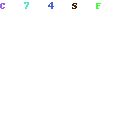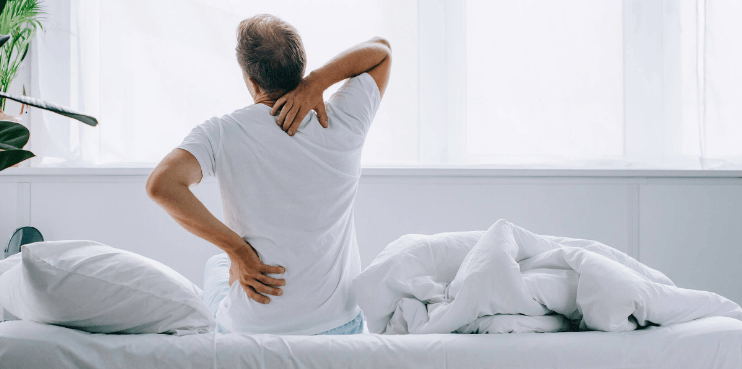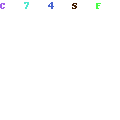Lower Back Pain Causes Female
Introduction
Lower Back Pain – Females: Approximately one out of three women will suffer low back discomfort at some time throughout their lives. more than 60% of women will suffer from some form of lower back discomfort. For a lot of women, back pain isn’t thought of as normal. Every year, patients go to a chiropractor or doctor to treat low back discomfort. But what is the root of the lower back pain of women? discomfort? What are the main reasons women are more likely to suffer the same symptoms as men?
The causes of back pain for Females
The primary and most frequent reason for lower back pain that is due to hormones is because of menstrual cycles. The uterus expands to hold eggs, however in the absence of an egg, it shrinks and shrinks back down to the size it was before. The contraction results in the ligaments supporting your uterus to place pressure on your spine. Also, pregnancy causes lower back pain due to the weight of the infant on your abdomen or when you carry a baby in a back car. As you get older discs may wear away and the spinal bones might not be able to join in the way they should at this point. This can lead to spinal degenerative changes that could cause discomfort throughout lower back pain. lower back.
Sometimes, however lower back pain may not just due to an action you took. From the time I was a teenager my sibling was diagnosed with cancer at a very young age, so I started visiting her at the hospital each morning after school. It was nothing to me to me until the day that I was unable to climb out of bed without screaming in pain and getting downstairs was a challenge that forced me to stop half way due to a throbbing discomfort in my leg. When I saw the doctor, they found that I suffered from the lumbar lordosis, a curve of my spine. They also informed me that too much sitting was a factor in the condition over time. They prescribed ibuprofen, and suggested I take longer breaks during my studies.
Lower Back Pain Causes Female
Lower back pain may be caused by a variety of causes, however one of the most intriguing causes is hormones. This type of pain is usually experienced by women during the period of their menstrual cycle however, it could also be due to weight, age, and even the kind of contraceptive she takes. If you’re experiencing back pain that appears to pop up out of the blue or appears to occur at irregular intervals, it could be due to hormones playing tricks on your. There are five reasons that could be the cause of the lower back pain you’re experiencing:
The hormonal changes that occur during puberty could cause an imbalance in the joints of your lower spine. This results in a variety of back discomfort. Changes in estrogen levels could make muscles stretch and relax readily than they ought to, resulting in an increase in tension, which can cause swelling and soreness within joints, muscles and ligaments. Certain birth control options such as hormonal IUDs could cause side effects, including pain in your pelvic region that can cause lower back discomfort. Fibromyalgia can be caused by persistent lower back pain. So If you suffer from fibromyalgia, or other ailments that have similar symptoms, such as chronic fatigue syndrome, then you’re likely to experience it’s causing the discomfort.
Lower Back Pain Reproductive Female
It’s possible that the lower back pain could be due to hormones. Five reasons that are surprising to consider:
#1: Hormonal fluctuations can cause sciatica to flare more frequently.
#2: It may result in an increase in the sensitivity of spinal cord’s nerves that could cause you to be more likely to experience back discomfort.
#3: A change in hormone levels can result in weight loss or gain and muscle weakness. Both could result in increased stress on your spine.
#4: A decrease in estrogen may result in a decline in the density of bones, this may increase the chance of developing osteoporosis as well as fractures to bones.
Progesterone levels that are high have been associated to migraine headaches, so it’s important to consider whether it’s causing your discomfort. In addition, cortisol levels have been proven to cause lower back pain since it affects the body’s capacity to repair itself (in addition to causing other health issues). If you think that hormonal changes could be behind your back pain discuss with your doctor regarding treatments such as bio-identical hormones or decreasing stress using relaxation methods.
The signs of lower back pain in females
The pain in the lower back as well as the buttocks and thighs is common among women suffering from hormonal issues in the female. The pain could be caused by one or more of these conditions that include Polycystic Obvarian Syndrome (PCOS) endometriosis uterine fibroids and tumors of the uterus, or Ovaries, and menopausal. Other signs are irregular periods losing hair on your face or head or chin, acne on the cheeks or jawline and weight increase around the waist and depression. The irregularity of your period is an indication of diabetes, and is something that should be investigated too. Most of the time, there is an underlying cause behind the hormonal problems like PCOS and it’s essential to have it examined. If you are experiencing some of these signs it’s best to see a doctor to ensure that the back pain isn’t caused by something else more important like cancer or anything else!
How to Relieve Lower Back Pain in Female
The best method to treat lower back discomfort in females is to first pinpoint the source. Most often, hormones are at the cause of the issue. Females’ progesterone and estrogen levels change through her menstrual cycle and could be peak at the time of ovulation. When the progesterone level of a woman decreases prior to menstrual flow could result in lower back discomfort. Other reasons for low back pain in females include sciatica or pregnancy, cancer or urinary tract infections (UTI). If a woman doesn’t understand the cause of the lower back pain in her then she should see her doctor to have an exam.
They’ll likely do an extensive physical exam and request tests for blood in order to determine if there are existing health issues that could cause the discomfort. In the case of UTI it is also possible to examine urine samples. In the event that the woman is expecting, they could suggest ultrasound scans or X-rays to make sure the child is in good health. If there is no clear reason for this pain in the first place, medical professionals frequently prescribe analgesics, such as Tylenol and Ibuprofen to decrease inflammation and alleviate symptoms until they go away by itself.







